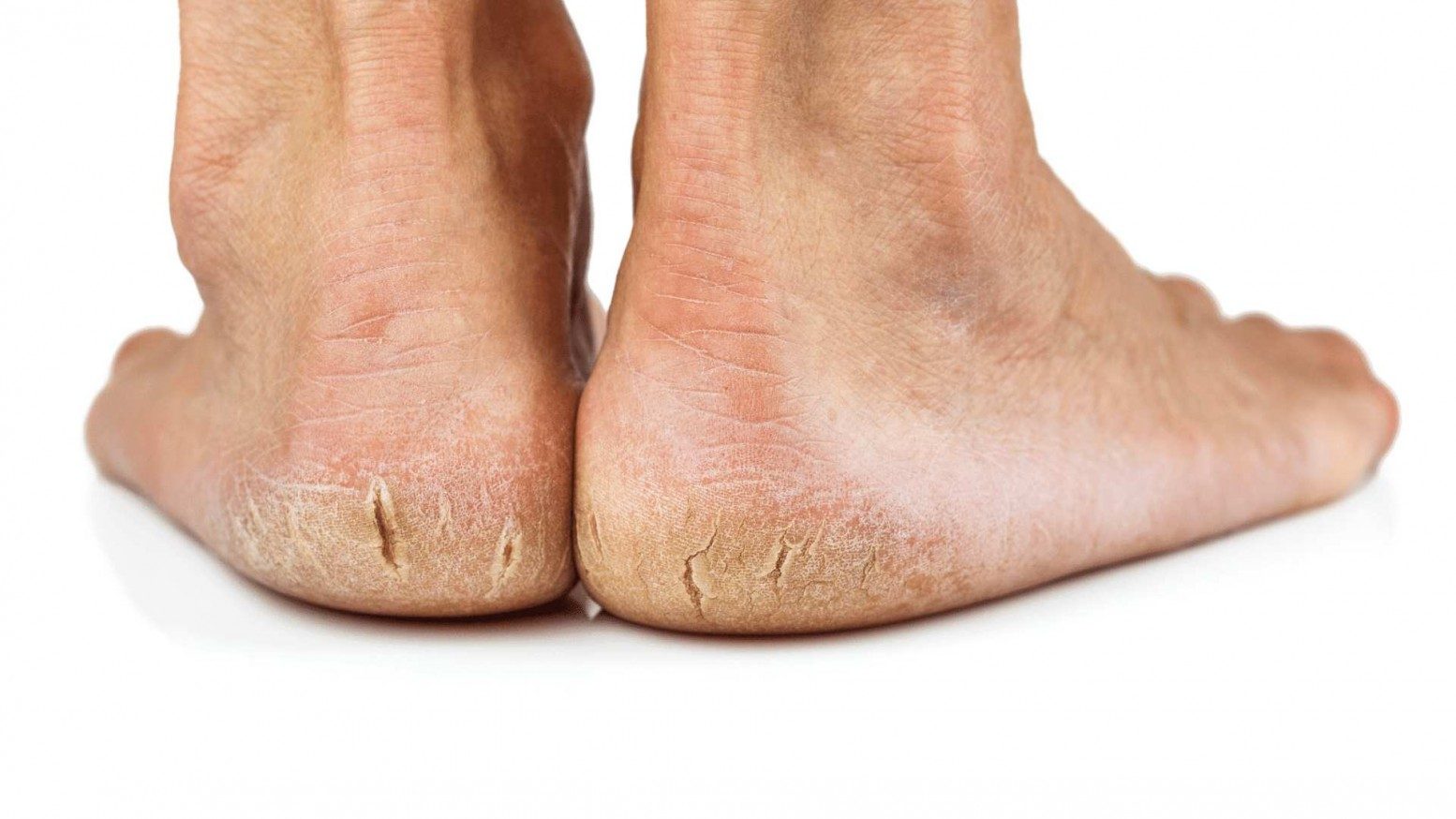Heel fissures, also known as cracked heels, can be uncomfortable and unsightly. Proper foot care and consistent treatment can help alleviate the symptoms and prevent further complications. Here are some tips for foot care and heel fissures treatment:
-
Hydration:
- Keep your body well-hydrated, as dehydration can contribute to dry skin. Drink an adequate amount of water each day.
-
Moisturize:
- Apply a thick, moisturizing cream or ointment to your feet daily, especially after bathing. Look for products containing ingredients like urea, salicylic acid, glycerin, or shea butter.
-
Exfoliation:
- Gently exfoliate your feet to remove dead skin cells. You can use a pumice stone or a foot file to smooth rough areas, but be gentle to avoid causing further irritation.
-
Soak Your Feet:
- Soak your feet in warm, soapy water for about 15-20 minutes to soften the skin before exfoliating. You can add a few drops of tea tree oil or Epsom salts to the water for added benefits.
-
Avoid Hot Water:
- Hot water can strip the skin of its natural oils, so use warm water instead of hot water when bathing or soaking your feet.
-
Wear Appropriate Footwear:
- Choose comfortable, well-fitting shoes that provide adequate support. Open-back or poorly fitting shoes can contribute to heel fissures.
-
Use Inserts or Pads:
- Consider using silicone heel cups or inserts to provide additional cushioning and reduce pressure on the heels.
-
Avoid Walking Barefoot:
- Avoid walking barefoot on hard surfaces, as this can contribute to heel fissures. Wear slippers or supportive footwear indoors.
-
Maintain a Healthy Diet:
- Nutrient deficiencies, such as a lack of vitamins A and E, can contribute to dry skin. Ensure your diet includes a variety of nutrients to support skin health.
-
Over-the-Counter Creams:
- Use over-the-counter creams or ointments containing ingredients like urea or lactic acid to promote skin softening.
-
Prescription Medications:
- In more severe cases, a healthcare professional may prescribe medicated creams or ointments to address dry and cracked skin.
-
Seek Professional Help:
- If heel fissures are severe or persistent, consult with a podiatrist or dermatologist for professional guidance and treatment.
-
Address Underlying Conditions:
- Certain medical conditions, such as diabetes or thyroid disorders, can contribute to dry skin. If you have an underlying health condition, work with your healthcare provider to manage it effectively.
Consistency is key when it comes to foot care and heel fissures treatment. If you experience pain, bleeding, or signs of infection, seek professional medical advice promptly. Regular foot care, combined with lifestyle adjustments and proper footwear, can help prevent and manage heel fissures.



